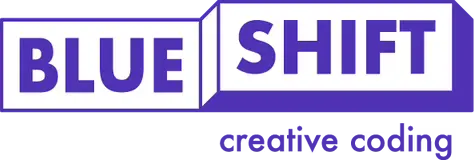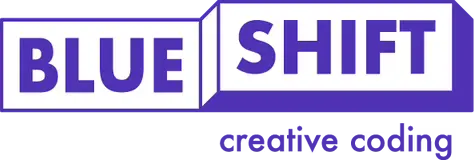EdTech Teacher Feature | Chris Moss | blue{shift} blog
'I was fascinated by how a computer went together, even though I had no idea really how' ~ Chris Moss
A: Hi Chris, it’s lovely to speak to you.
C: Good morning, thanks for having me!
A: So, let’s jump right in at the start. When did you first become interested in tech? How did this develop as you grew older?
C: I’ve always had an interest in computers. When I was six or seven years old, my brother had a computer business where he sold Dells that he had constructed and I would always watch him. The Dell computers could be ordered in parts, and so my brother would buy the parts on the cheap, put them together, and then ship them off. I think it was the nuts and bolts of it that really grabbed my attention. I was fascinated by how a computer went together, even though I had no idea really how. Then throughout my school career little technological things grabbed my attention, like pivot animator, and I was really into video gaming, particularly the old box console and the game Shao Lin's Road. I thought it was amazing, I wanted to find out more.

Shao Lin's Road, 1985
So then when I started programming it kind of clicked for me. I was like ‘oh this is how it’s put together’. But I guess I actually came to that quite late; I really only properly started coding a few years ago, in 2014 I think, when I was at university studying philosophy. Coming from a social science background I realised that lots of my friends were really struggling to find high outcome careers. I felt like I needed to redirect my interests. I’d been learning code instead of studying a lot of the time, and I knew that I could probably take it further. I’d also done a number of years teaching English as a foreign language in France and Spain - which I’ve done on and off since - and so in that way I also knew I really enjoyed teaching. I kind of decided to pursue edtech because in this sector that love for tech and teaching come together perfectly.
A: Yeah, and of course blue{shift} is obviously an edtech company. What’s the story of how you joined blue{shift}?
C: So I started really when my older brother was a teacher here. He’d been enjoying it so I thought I’d give it a go. The first thing I remember doing is assisting one of the other teachers, Diana, in one of her classes. To be honest, it kind of just grew from there. I was teaching for a while, then I moved to Valencia and taught English again for a year, and then I came back to working for blue{shift}. And it’s really developed over the years from there - I’ve had office roles, I’ve taken time out, I’ve been involved in developing the curriculum - they’ve been very flexible which has been great for giving me a chance at expanding my knowledge, managing my own time, and taking further study.

Chris, from an old blue{shift} teacher photo
Speaking of expansion and going further then, what is it in the world of tech that you find particularly exciting at the moment, Chris?
The thing I’m obsessed with, if I have to say, is this piece of hardware that’s effectively a hologram fan. It uses LEDs that aren’t visible to the human eye and shoots these out, and you can then project images and all kinds of other things onto it. So for example you can do some coding in P5.js where you can design a logo or a character and then project it in an environment that makes it look like a 3D model. It’s like being a sci-fi film, and it’s actually quite simple code, but it just looks so cool.

A hologram fan that utilises code
Yeah, so technology is inherently frustrating for a multitude of reasons. When it comes to coding you might have something that’s not working. You’ve clicked run but it’s failed, so then you have to try again. Maybe that’s doing some debugging, and then after that you’re able to run it again. But debugging is just one aspect. You also have human errors, syntax errors, you have hardware and software problems as well. All of these things, go together and make something that should be simple really complicated. One way to solve problems in tech, is to apply the empirical scientific method. It’s this idea of premise, thesis, and antithesis - basically you follow a clearly defined path. And that process, especially for me (but also the kids) is very frustrating. But you have to take the good with the bad. I have to remind myself that when things don’t work I need to see it as an opportunity to learn more rather than getting frustrated, though that can be hard sometimes.
That's a good way to think about it; I can see how that feeds into your teaching. What approach do you take in class?
I think it’s really really important when you’re teaching to be friendly, but not friends. You want to be enthusiastic, you want to seem extremely knowledgeable, and you want to demonstrate and explain the concepts to the kids in a simple way. But at the same time you want to provide structure; you need to scaffold lessons so that you can create a learning environment where they can figure things out for themselves. You don’t want to be giving them all the answers but obviously you need to guide them when they get stuck. And on top of that, activities need to be achievable in the time frame you have, because this is often actually pretty short. Your lessons also need to have the scope so that if you do capture your students imagination they are able to go away and learn more in their own time.
Chris at the blue{shift} offices
That’s really interesting. For me I think of that as a very modern strategy.
Yeah I would agree. That’s what I try to do, and it’s something that’s very much reflected across blue{shift} I think.
For sure. I guess my next question for you, then, has to be: is there anything that you think that blue{shift} is doing that’s really changing how computing is being taught?
I really believe that blue{shift} is uniquely poised because we’re lucky enough to work with students from a number of top schools around London. Not only do we get a chance to go into a school environment and embrace that side of education, but as the largest provider of school computer clubs in London we have a unique opportunity to define the curriculum, in some small way. The Department of Education is really looking to change this and is heavily investing in education technology. These are things like communication with parents, formative assessment, developing tools to reduce teacher workloads, and of course simply developing ways to bring challenging concepts into the classroom. I’m asked by ICT teachers and Principals all the time how they can implement the computer curriculum in their schools. In this way, as well as inspiring children and students to be creative with code, we’re helping teachers and educators approach technology. I’d argue that we’re really having an impact on the formation of tech in schools. Of course it’s not perfect, and it’s an ongoing project, but I think our team is really helping to create a structure that helps coding be understood by all kinds of different people.
Finally, is there anything that you’re particularly proud of that you’ve made with code and tech?
I’m super happy with the Python Game Hacking course I developed with one of the other teachers, Lloyd. It’s basically an implementation of Pygame. We focus on the fundamentals, before moving onto more complicated concepts using the Pygame module to create visual displays. It’s really fun and interactive - there is a debugging challenge with a bouncing ball. Colour is defined, the ball logic is defined, and then we use some independent learning where the students have to go onto a website and find their own data. As they go along it’s likely they’ll probably encounter an error but they then normally figure it out by themselves, and of course I step in if they are really struggling. But for all the students I think it’s a really rewarding course because they have this eureka moment where it all works and they understand how they’ve got to this point. That’s just as rewarding for me as a teacher as well. I’ve been doing the course this term at Thomas’ Battersea to about 15 or so students and they really love it. It was great because one of the boys came up to me and said ‘Python is fun now!’ and that was the best thing to hear for me as an educator, because it implies that he had learnt it before but through my technique and approach I’d made it engaging. That’s just one moment, but to be honest you get that all the time in class.

Student work for the Python Game Development Course
Chris currently teaches at our after-school clubs at Notting Hill Prep, Thomas's Battersea, and King Alfred School, as well as teaching many of our courses at our holiday camps and as part of our private tuition team. More recently he’s also been developing a number of important team projects here in the office - find out more soon. And keep an eye out for our future teacher features. Thanks for reading! ~ Adam








